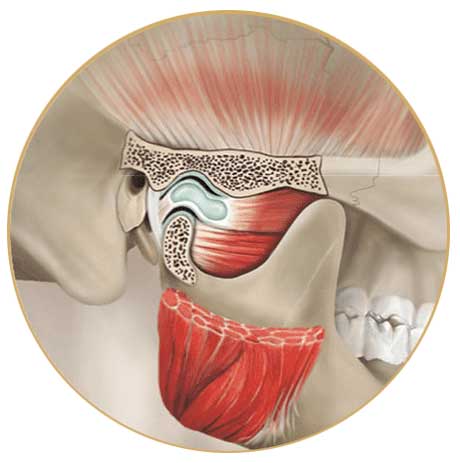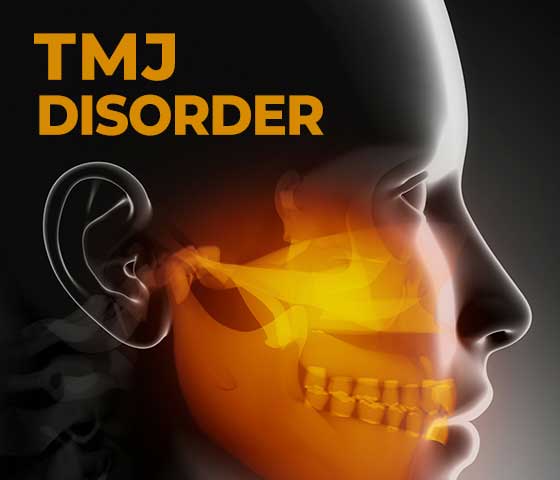TMJ Dysfuntion or temporomandibular joint dysfunction, also known as temporomandibular disorder (TMD), refers to a group of conditions that affect the jaw joint and the muscles that control jaw movement. The TMJ is the joint that connects your lower jaw (mandible) to your skull, allowing you to open and close your mouth, chew, speak, and perform other functions involving your jaw.

The temporomandibular joint is a complex and important structure comprised of bones, tendons, and muscles that may cause you to feel pain on one or both sides of the jaw. This can make it very difficult to open your mouth, talk, yawn, and chew.
If you are having difficulty chewing or yawning, have jaw pain, or hear a clicking noise when you open and shut your mouth, you could have TMJ dysfunction.
Request an appointment with Revolve Physiotherapy to find relief for your TMJ dysfunction with physiotherapy.
TMJ Dysfuntion can manifest in a variety of ways and may include the following symptoms:
Jaw Pain: The most common symptom is pain or discomfort in the jaw joint. This pain can be sharp and temporary or chronic and dull.
Jaw Clicking or Popping: Some individuals with TMD may experience clicking, popping, or grating sounds when they open and close their mouths. This can be due to changes in the joint’s structure or function.
Locking of the Jaw: In some cases, the jaw may temporarily lock in an open or closed position, making it difficult to open or close the mouth fully.
Muscle Pain: TMD can cause pain in the muscles that control jaw movement, leading to facial pain, headaches, and neck pain.
Difficulty Chewing: Some people with TMD may have trouble chewing, and their bite may feel uneven or uncomfortable.
Earache: TMD can also cause referred pain to the ears, leading to earaches and ringing in the ears (tinnitus).
The exact causes of TMD can be complex and multifactorial. Common factors contributing to TMD include:
Dental Issues: Misaligned teeth, an improper bite (malocclusion), or dental problems can strain the jaw joint.
Bruxism: Teeth grinding and clenching, especially during sleep, can put excessive pressure on the TMJ and surrounding muscles.
Injury: Trauma to the jaw or face, such as from an accident or sports injury, can lead to TMD.
Stress: Emotional and psychological stress can lead to clenching of the jaw muscles, exacerbating TMD symptoms.
Arthritis: Inflammatory joint conditions like arthritis can affect the TMJ.
Treatment for TMD can vary depending on the severity and cause of the condition. It may include:
Self-Care: Some cases can be managed with home remedies, including rest, hot/cold compresses, and over-the-counter pain medications.
Oral Appliances: A dentist may recommend a nightguard or splint to prevent teeth grinding and reduce strain on the TMJ.
Physiotherapy: Exercises and stretches may help improve jaw function and reduce pain.
Medications: Pain relievers, muscle relaxants, or anti-inflammatory drugs can be prescribed to manage symptoms.
Dental Procedures: In some cases, dental procedures like orthodontic treatment or adjusting the bite may be necessary.
Surgery: In severe and rare cases, surgical intervention may be considered if conservative treatments are ineffective.
If you suspect you have TMD or are experiencing symptoms related to it, it’s essential to consult with a healthcare professional, for a proper diagnosis and treatment plan tailored to your specific condition.
TMJ Dysfuntion treatment in Milton. Choose the best team! Call us 905 864.8181 and talk to a Specialist!
